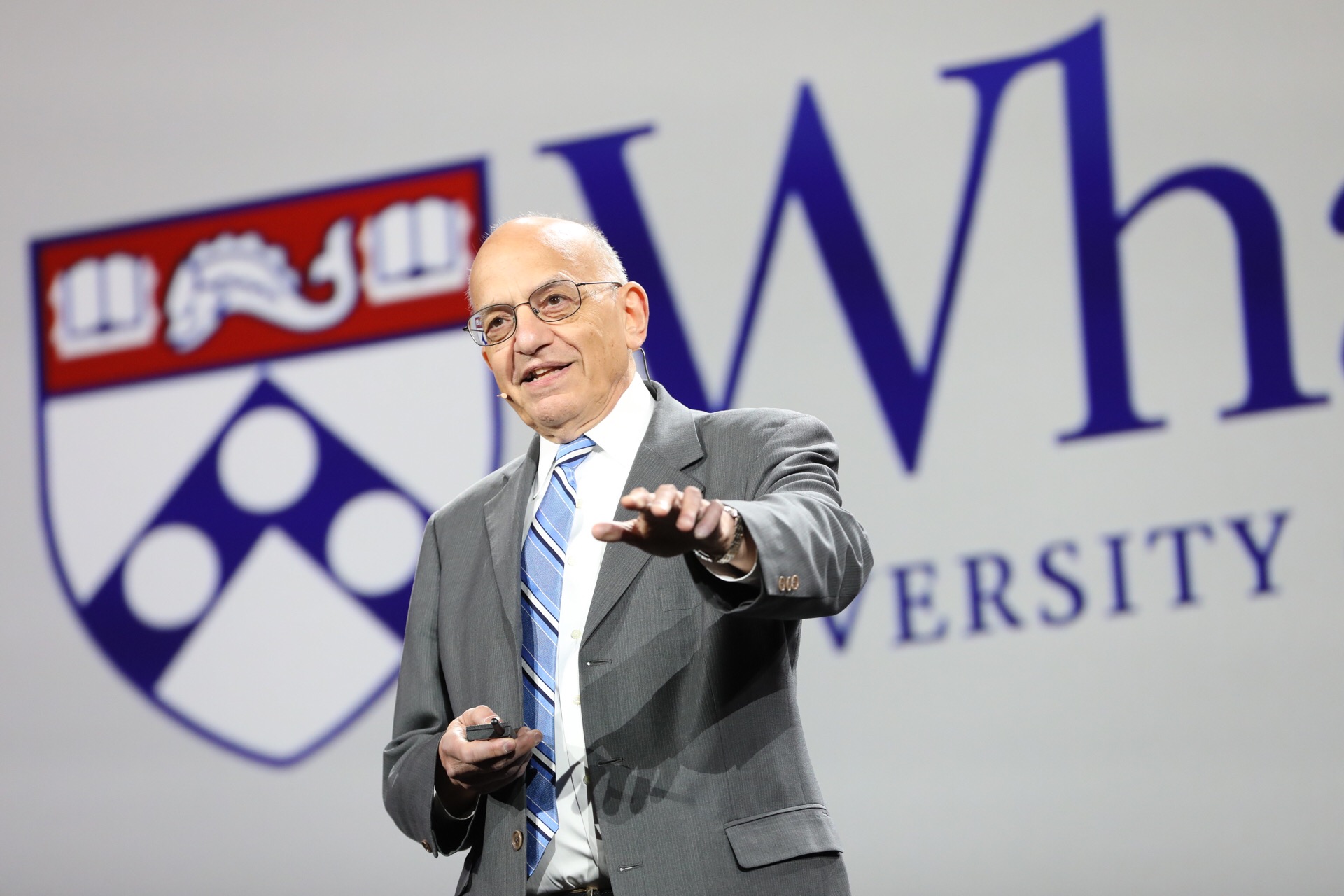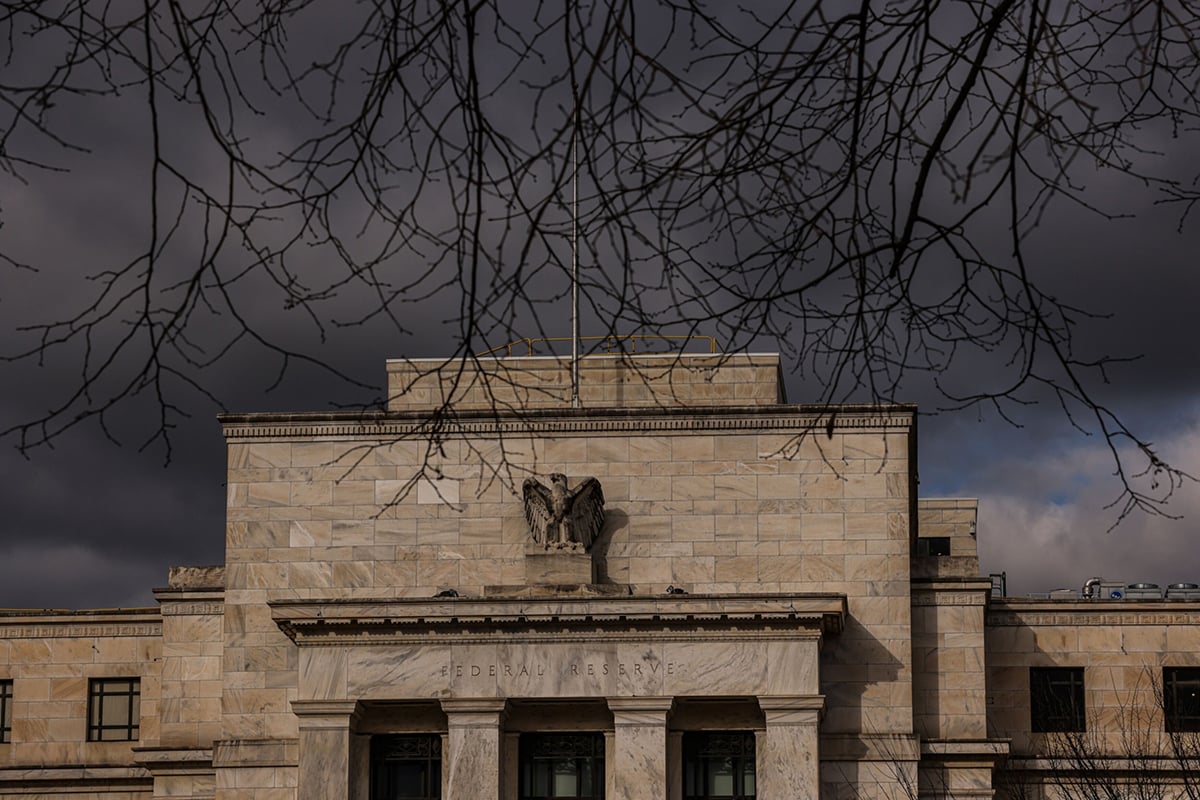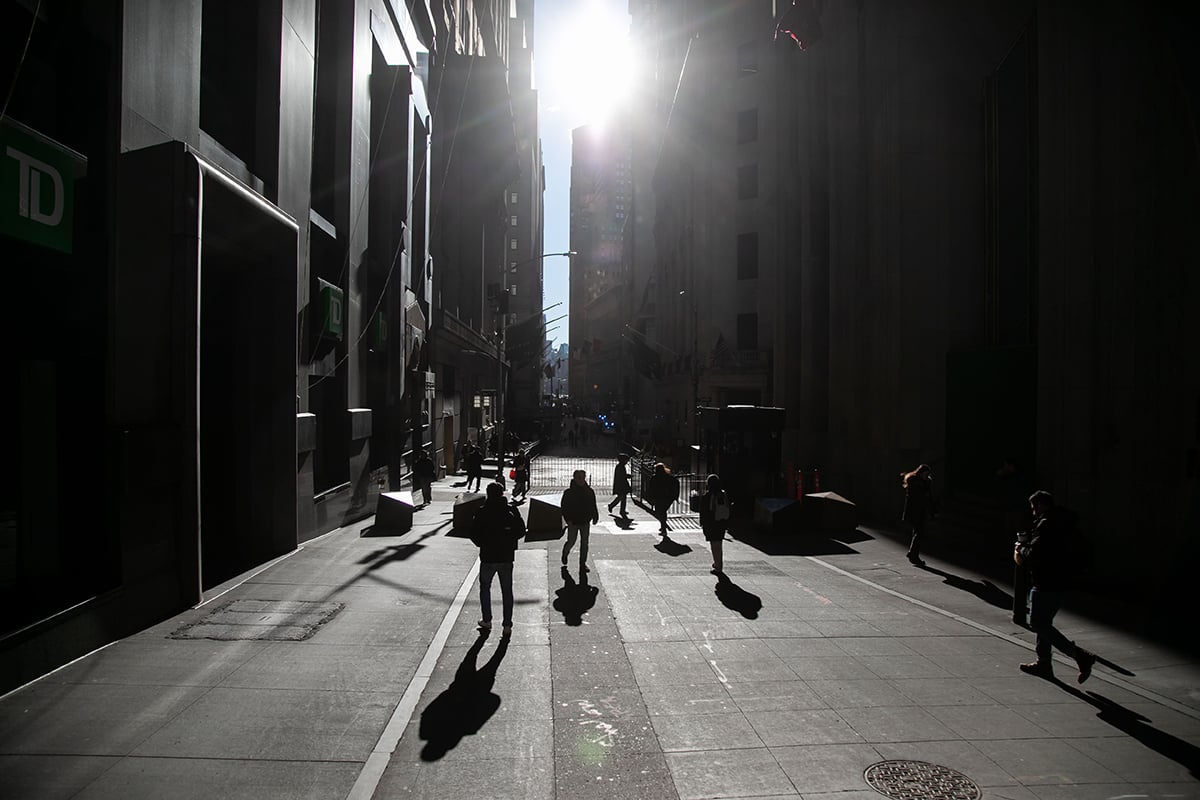 Prof. Jeremy Siegel speaks atLINC 2018. (Photo: Lila Photo for TD AmeritradeInstitutional)
Prof. Jeremy Siegel speaks atLINC 2018. (Photo: Lila Photo for TD AmeritradeInstitutional)
Wharton professor Jeremy Siegelsaid Monday that the country is in "need of presidential guidance—thisis the time when calm concern should be expressed and [helpful]measures need to be taken.
|"Tens of millions of Americanscannot work from home," explained Siegel, who is also a seniorinvestment strategy advisor for WisdomTree. "This is a big concern … [and]maybe we need delayedpayments/forgiveness periods for debt, mortgage obligations, or taxpayments."
|As Siegel spoke on a call withinvestors late Monday, President Donald Trump was discussing a possible payroll tax cutand other relief measures in response to the coronavirus at a press conference.(These remarkspushed stockfutures up in after-hours trading.)
|"This is the time forpoliticians of both parties to come together," Siegel added, "and Ithink they will. Wehave to get these loans [and other steps] in place.… I am notconvinced we can prevent a recession.At 11 years, thisis longest expansion in economic history—but all good thing come toend."
|As for different investments,the finance guru says dividend-paying stocks "are the new bonds"when it comes to providing yield, while long-term bonds "are the new gold" and "the newVIX" volatility indicator.
|"The negative beta property ofTreasuries has been growing, and as long as bonds are viewed as ahedge, we're going to have extremely low yields," headded.
|Though he doesn't like gold as along-term asset, Siegel sees it as a better short-term, defensiveholding than bitcoin: "Bitcoin was down 14 percent today, so thatwon't help its image as a stock hedge."
||
Oil Spill
Addressing what happened to themarkets on Monday, Siegel explained: "It's been quite a day, with a7 percent-plus decline—and it's ironic that 11 years ago to thedate the great bull market began. I can recall the S&P 500 at676 and the Dow at [about 6,500]. Another 2 to 3 percent would bring us our firstbear market in 11 years."
|He said the big drop was due"about 50 percent to the oil situation and 50 percent to otherconcerns associated with the coronavirus."
|"We are no longer an importerand are now an exporter of oil," said Siegel. "As such, we shouldsuffer the loss of real economic income. While users (like drivers)gain, the loss to producers should be greater—which has not beenthe case before … We have about $1 trillion in capital lockedinto the energy sector, directly and indirectly."
|Other effects include putting"tens of thousands out of work, and it up-ends renewables, since norenewable energy source can compete with [cheap oil]," headded.
|Those energy firms withsignificant debt on their balance sheets "likely will not survive,"Siegel said. "There's going to be tremendousconsolidation."
|He'll be watching whatExxon—which is not in that situation—will do with its dividend; thedividend yield on its stock today is about 9 percent. "They'venever reduced it and have only increased it, even with low oilprices," he pointed out.
||
'Other Shock'
As for the coronavirus, Siegelworries that we "will need to quarantine and selectively quarantine[some parts of the U.S.], and what does that mean forearnings? If weexpect a bounce-back [from the virus], then it should not warrant a20 percent decline [in stocks]." (After Monday's close, the Dow wasdown 17.4 percent year-to-date.)
|Allianz Chief Economic Advisor"Mohamed El-Erian said we should drop 20 to 30 percent from thetop. I'll give him credit. He made a good call early on about howserious this might be," said the Wharton professor.
|"The argument could be made thatthe market was about 10 percent overvalued earlier this year," headded "but … then, we shouldn't expect to see more than a 10percent decline."
|Returning to the topic ofearnings, Siegel said there's often a 20 to 30 percent drop inrecessions and as much as a 40 to 50 percent decline in very badbear markets like that of the 2007 to 2009 financial crisis, when"problems were tied to overbuilding and over-investing, which takeyears to liquidate and repair."
|For 2020, he expects consumerdiscretionary spending to be hurt as people stay home and spendless on entertainment.
|"This is not the 'big one' interms of a pandemic," the finance guru noted, "but clearly it's a shot across the bow for theneed to be much better prepared than we are today in terms ofmonitoring and quarantining."
||
|
From: ThinkAdvisor
|
Complete your profile to continue reading and get FREE access to Treasury & Risk, part of your ALM digital membership.
Your access to unlimited Treasury & Risk content isn’t changing.
Once you are an ALM digital member, you’ll receive:
- Critical Treasury & Risk information including in-depth analysis of treasury and finance best practices, case studies with corporate innovators, informative newsletters, educational webcasts and videos, and resources from industry leaders.
- Exclusive discounts on ALM and Treasury & Risk events.
- Access to other award-winning ALM websites including PropertyCasualty360.com and Law.com.
*May exclude premium content
Already have an account? Sign In
© 2024 ALM Global, LLC, All Rights Reserved. Request academic re-use from www.copyright.com. All other uses, submit a request to [email protected]. For more information visit Asset & Logo Licensing.








